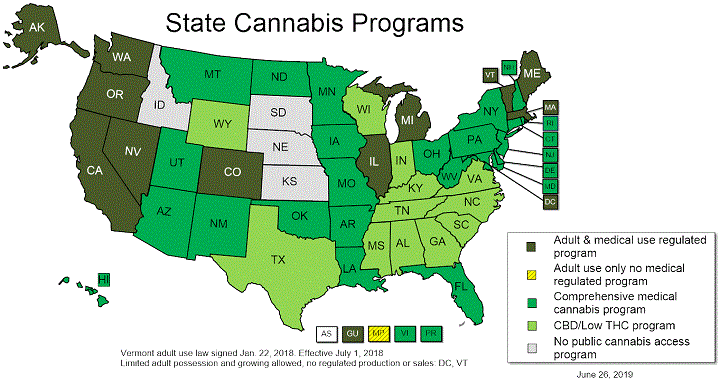 “Marijuana has not been decriminalized in Texas”
“Marijuana has not been decriminalized in Texas”
So reads the letter, signed by Gov. Abbott, Lt. Gov. Dan Patrick, House Speaker Dennis Bonnen, and Attorney General Ken Paxton. It may not be decriminalized, but it sure has taken an interesting turn with the passage of House Bill 1325 this past session.
The so-called “Hemp Bill” took the drug off the list of controlled substances in Texas, as long as products such as CBD oil contain no more than 0.3 percent THC, the psychoactive ingredient that gives users their buzz.
So what’s the problem? It seems measuring the difference between legal (0.3 percent) and illegal (0.4 percent) requires very special equipment which is not readily available and expensive. Some estimates projected the equipment and training for 25 new employees to be around $5.5 million annually. Since no funding was provided, many district attorneys are delaying, or even dropping low-level marijuana cases.
The letter signed by Abbott, Patrick, Bonnen and Paxton went to say…
“Since H.B. 1325 did not repeal the marijuana laws of Texas, as Judicial Branch Members, you should continue to enforce those laws by ‘faithfully executing the duties of the office of the [District or County Attorney], of the State of Texas, and … to the best of [your] ability preserve, protect, and defend the Constitution and laws of the United States and of this State.”
The problem is lawmakers were told before they voted that H.B. 1325 was going to make prosecuting marijuana a lot tougher. The Texas Department of Public Safety testified to state budget officials the bill would need to be funded to work. Democratic state Rep. Tracy King’s office was told that, without funds for new lab testing, the legislation would “essentially legalize marijuana.”
It’s all part of the “un-funded mandate” game. Austin makes the rules, then wants to local jurisdictions to figure out how to pay for it. Texas lawmakers take great pride passing tax cuts, implementing new laws, then screaming foul when local authorities try to figure out how to make it work, or worse don’t try at all.
With lawmakers approving a $250.7 billion two-year budget, could someone in Austin have listened a little more carefully to the people testifying and come up with $5 million?
